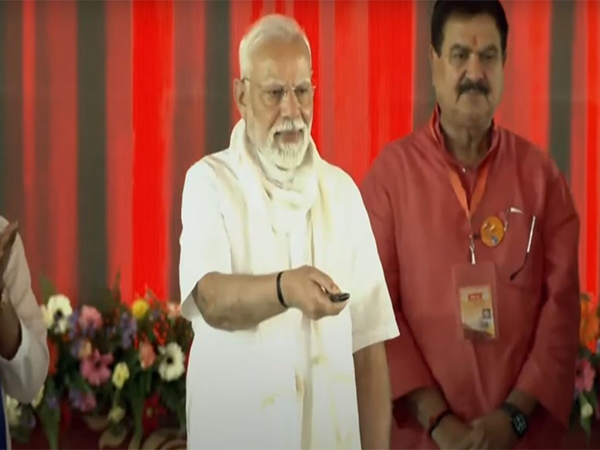Can't make sense of the GST debate? Here's what you need to know

The goods and services tax, or GST, has been hanging fire for over a decade. The BJP and the Congress both support it, but neither would accommodate the other's suggestions.
Indeed, Finance Minister Arun Jaitley, who is trying frantically to convince the opposition to support the GST bill in the Rajya Sabha, had left no stone unturned to block it during the UPA regime.
Also read - 10 things you must know about GST, which was introduced in Rajya Sabha today
The GST is touted as being crucial to simplifying the tax regime, thereby helping 'ease of doing business'. Analysts estimate it would increase India's GDP by up to 2%.
While the NDA regime got the GST bill passed in the Lok Sabha, it doesn't have the numbers in the Rajya Sabha. Hence, it's trying to get the opposition, primarily the Congress, on board.
But what exactly is GST and why is it needed? Here is an explainer.
What is GST?
GST will simplify the country's tax regime by subsuming a host of indirect taxes levied by the central government and the states. The Centre earned Rs 5.46 lakh crore in indirect taxes in 2014-15.
Central taxes that will go with the introduction of GST are:
- Central Excise Duty, or CENVAT
- Additional Excise Duties
- Additional Customs Duty, commonly known as Countervailing Duty
- Central Sales Tax
- Various surcharges and cesses, like the Swachh Bharat cess, levied on goods or services
- Excise Duty under the Medicinal and Toiletries Preparations
- Special Additional Duty of Customs
- Service Tax
- VAT or sales tax
- Entertainment Tax, unless it's levied by the local civic bodies
- Octroi and Entry Tax
- Taxes on lottery, betting and gambling
- Luxury Tax
- State cesses and surcharges on goods and services
- Purchase Tax
GST will subsume sales, services and entertainment taxes, excise duty, VAT, Swachh Bharat cess
How will GST help?
- Currently, businesses in India are subjected to tax regimes of the particular states they operate from. This is to the disadvantage of companies based out of certain states or those operating in multiple states.
- GST will bring uniformity, and iron out distortions caused by the varied tax exemptions granted by different states.
- It will also do away with a complex structure of tax exemptions to different sectors that is known to fuel tax evasion by corporates.
- It'll reduce the end cost of goods and services for the consumers.
Also read - Government to reach out to opposition to get GST Bill passed: Arun Jaitley
What are the sticking points in the GST bill?
- The NDA wants to keep alcohol, petroleum products, electricity and tobacco out of GST. The idea is to compensate "manufacturing states" for loss of revenue.
- The opposition argues that except for alcohol, the omitted items account for a substantial part of the input cost of manufacturers. And if they are left out, the companies would lose most of the benefits of GST.
- The government says states could levy 1% tax other than GST on goods, particularly those manufactured in one state and sold in another.
- The Congress insists the very idea of GST would be lost if any other tax is levied outside it. Worse still, the 1% extra tax would be levied on products manufactured in India, not on imported ones.
- The rate of GST should be dynamic and decided by the government of the day
- No, says the opposition. The tax rate should be enshrined in the GST Act, and any future change must be subject to the parliament's approval.
BJP-Congress bone of contention: Should GST rate be revised by the government or by the parliament?
Apart from this, many states have been averse to GST as it favours bigger "consuming states". So, while Uttar Pradesh, Maharashtra and Bihar will benefit due to higher consumption of products, "manufacturing states" like Tamil Nadu will lose out on revenue.
To get such states on board, the NDA has proposed to compensate them for 100% revenue loss for the first three years after GST, and 75% and 50% over the next two years.
MORE IN CATCH - Want to get rich quick? Snitch on your next-door tax evader







![BJP's Kapil Mishra recreates Shankar Mahadevan’s ‘Breathless’ song to highlight Delhi pollution [WATCH] BJP's Kapil Mishra recreates Shankar Mahadevan’s ‘Breathless’ song to highlight Delhi pollution [WATCH]](https://images.catchnews.com/upload/2022/11/03/kapil-mishra_240884_300x172.png)

![Anupam Kher shares pictures of his toned body on 67th birthday [MUST SEE] Anupam Kher shares pictures of his toned body on 67th birthday [MUST SEE]](https://images.catchnews.com/upload/2022/03/07/Anupam_kher_231145_300x172.jpg)






